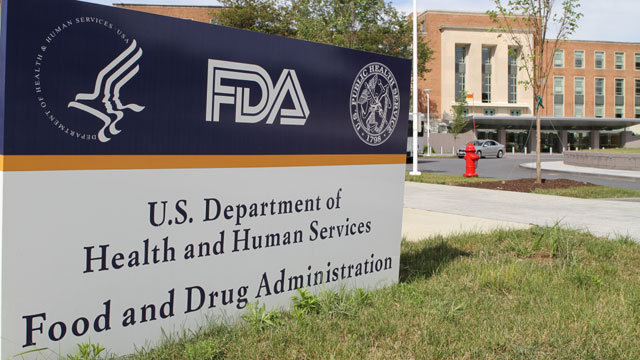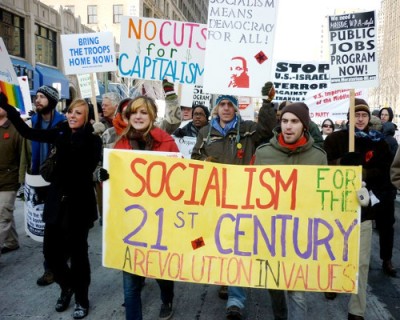The U.S. May Be More Socialist Than You Think
1. Social Security
Social Security was begun in 1935 as a means of taking care of older generations. At the time, the minimum age set to receive full retirement benefits was 65, as the average life expectancy was only 61. However, as the topic has become more politicized and citizens have had more of their paychecks taken in the name of Social Security, it has become nearly impossible to raise the “retirement” age. Even as the average life expectancy has risen by nearly 20 years, the Social Security collection age has risen by only 2 years (for those born in 1960 or later). What has resulted is a program that forcibly takes from poorer, younger workers in order to give to older, wealthier retirees. Plans to partially privatize the system have been met with fierce hostility, but it appears that if the problem is not dealt with soon enough, Social Security will quickly become insolvent.
2. The Federal Reserve

Created in 1913, the Federal Reserve is the government’s ultimate institution that is “too big to fail.” It quietly steals dollar values from millions of Americans as inflation increases exponentially. In the meantime, it provides the government unlimited funds to enact other Socialist policies. Through its totalitarian influence, the government prohibits the use of any alternate currencies, acting quickly to squash such initiatives any time they may began to appear. Worse yet, the Federal Reserve acts without any type of check or balance and is given almost no scrutiny in its policy decisions, as it has evaded numerous audits in recent history, almost all of which were proposed by former Congressman Ron Paul.
3. Endless Wars
Said Randolph Bourne, “War is the health of the State. It automatically sets in motion throughout society those irresistible forces for uniformity, for passionate cooperation with the government in coercing into obedience the minority groups and individuals which lack the larger herd sense.” While many modern-day conservatives seem to never want to cut a penny from the defense budget, it now takes up roughly $600 billion of the US Budget.
Though defense is perhaps the most important, or maybe the only thing that the US Government should do, it is impossible that there is not a more efficient way of using our resources. This growth has occurred in large part because of a post-World War II United States which intervenes far too often in conflicts which are not in our direct interest. Worse yet, these constant wars also help to create a society which too often allows violations of civil liberties and human rights, a hallmark of authoritarianism.
4. Farm Subsidies
In one of its most meddlesome market practices, the government provides farmers with extra government money if the state deems that those crops could not thrive in a market economy. This policy protects producers from competitors foreign and domestic, propping up corporate interests and passing the costs on to the American taxpayer. Subsidies also are a way in which government takes ownership over industry, allowing bureaucrats, rather than consumers, to make the decisions on which companies thrive in the marketplace.
5. Government Schooling
Vladimir Lenin once said, “Give us the child for 8 years and it will be a Bolshevik forever.” There has perhaps never been a more telling quote in regards to government entanglement in education. The US government has nearly monopolized schooling, as voucher programs have consistently been turned away in order to satisfy always-powerful unions. Schools have been regularly given more rigid national standards since the creation of the Department of Education through programs like No Child Left Behind and Common Core. Schools seem to continually move further away from the final goal of an adequate education, as they compete for federal funding through student success on endless standardized tests. The aforementioned unions make it almost impossible to fire ineffective teachers, preserving the status quo at any costs.
6. Corporate Welfare

Supported ubiquitously on both sides of the aisle in Congress, while being vehemently opposed by almost every American citizen, corporate bailouts pick winners and losers in what should actually be a free market which punishes corporations that act badly. Worst of all, corporate bailouts are rarely labeled as such; they are often masked as programs designed to help the poor. As opposed to the incendiary, false designation of laissez-faire capitalism as “trickle-down economics,” this seems more apt to receive such a title. Government funnels billions of dollars into monstrous corporations, who are in turn are expected to turn over such gains to consumers. There are too many pro-big business government programs in existence to name them all, but it is safe to say that if a regulation is supposedly designed to target large corporations, such legislation will likely end up only applying to their smaller competitors, with many exceptions for the bigwigs themselves.
7. The Internal Revenue Service
Created in order to streamline collection of income taxes, the IRS is likely the most hated government entity in the US, and for good reason. No other government agency is able to thoroughly dismember the Bill of Rights in the way that the IRS does. The IRS demands that you report every personal detail, so that it may “fairly” decide how much you should pay in taxes. The tax system itself is the embodiment of class warfare, as wealthier individuals pay much higher rates. The IRS is powerful and pervasive; Americans as a whole spend millions of dollars and hours every year in an attempt to fill their taxes out correctly. Even the smallest discrepancy can be cause for an audit by the IRS, and if you are found to be hiding something from the government, you could be in jail for a long time.
8. Health Care

While Republicans have been decrying ObamaCare since the moment it was created, the healthcare system in the US has not been a truly free market in generations. During World War II, Franklin Roosevelt prohibited wage increases, which led to workers demanding health insurance as an alternate form of compensation. Both Medicare and Medicaid were created in 1965. They have both been thoroughly expanded in the time period since. As more Americans become insured (as they are mandated by the government to do so), prices increase and qualities decrease due to a larger pool and a broadening burden on doctors. Much like Social Security, cuts to Medicare and Medicaid are heresy, even as the programs balloon out of control. Obamacare is socialism because even though there might be dozens of insurance companies, the product is designed and created in Washington D.C.
9. Public Transportation & Security
In perhaps its most frivolous spending project, the government is involved in transportation in more than one facet. First of all, the government invests billions of dollars in projects like Amtrak, which is highly expensive and is therefore not at all able to compete with private carriers. Then there is the TSA, which invades our privacy and personal rights every time we choose to travel through an airport (something similar to the arrival to a designated checkpoint in a former Soviet state). Both are similar in that they represent an intrusion by the government into an area which should be exclusively left to the free market. Under the current model, government wastes our money and destroys our rights through its unnecessary entanglement.
10. The Food and Drug Administration

There is no greater power that can be exerted over an individual than telling him or her what can be eaten or drank. This is exactly what the FDA does. In the name of public health and safety, the FDA was created in 1906. Since then, it has grown to encompass many different functions. It has the power to prohibit particular food and drugs from being sold or consumed. Once again, a power that should be left purely to market forces has been nationalized. This Department uses fear-mongering to justify its existence, but it serves no purpose other than to further control our lives.


